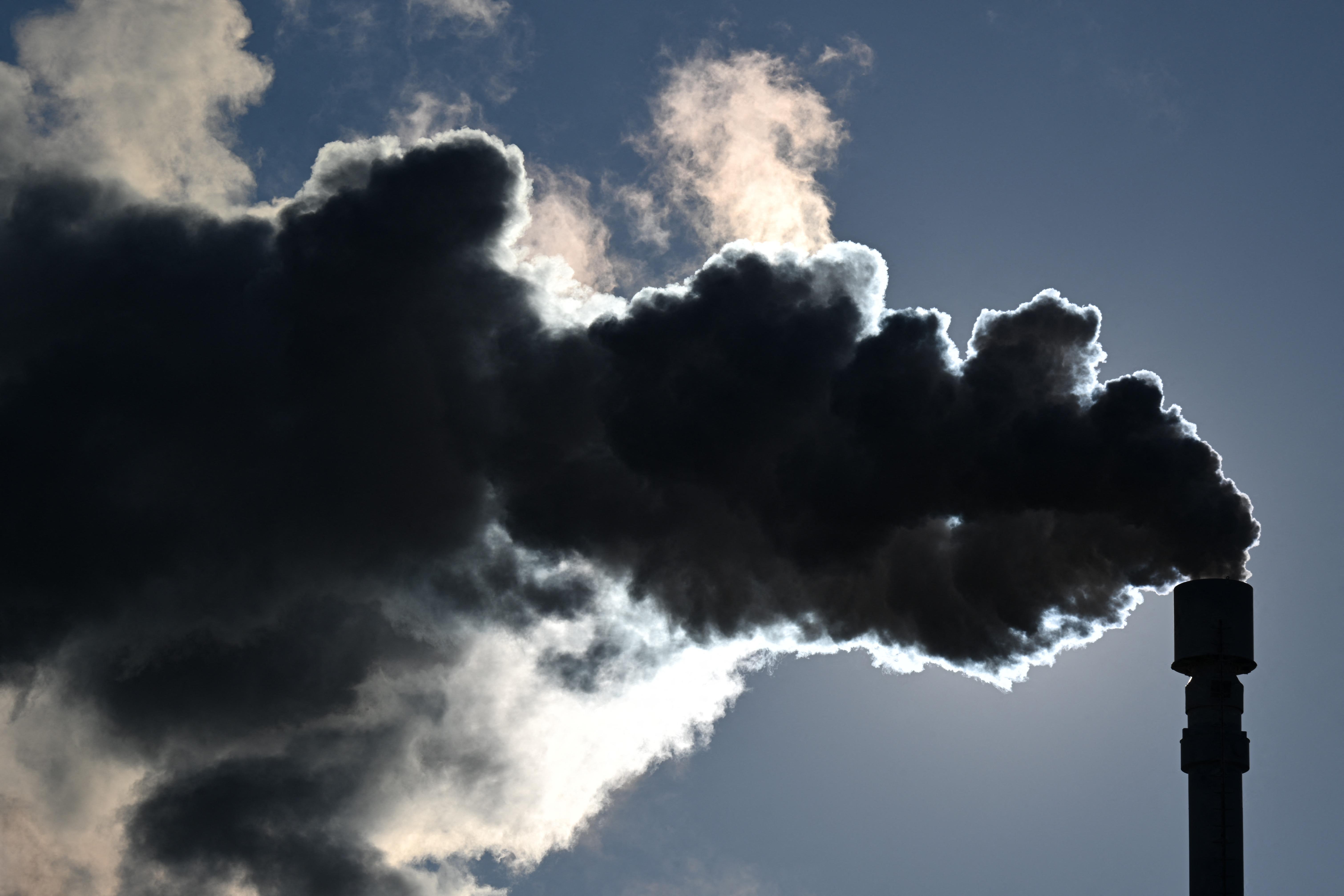 Chimney smoke rises over a plant in Pratteln, Germany on Feb 8, 2023. (PHOTO / AFP)
Chimney smoke rises over a plant in Pratteln, Germany on Feb 8, 2023. (PHOTO / AFP)
LONDON - Governments are making insufficient progress in slashing greenhouse gas emissions to avert the worst impacts of global warming, according to a United Nations report released Tuesday.
The report comes just weeks before world leaders are due to gather in Dubai for the annual UN climate conference COP28 which will see governments push for greater climate action, including a possible phaseout of fossil fuels before 2050.
"COP28 must be a historic turning point in this critical decade," said Sultan al-Jaber, chief of the UAE's state oil firm who will preside over the talks.
National plans saw a marginal improvement over last year's ambitions, with emissions then projected to rise 11 percent compared to 2010 levels
Under current national climate plans, known as Nationally Determined Contributions (NDCs), emissions can be expected to rise 9 percent above 2010 levels by the end of this decade even if NDCs are fully implemented, the report found.
ALSO READ: Watchdog: Global energy-related CO2 emissions hit record high
Greenhouse gas emissions would fall to 2 percent below 2019 levels by 2030, the report added, indicating the world will see emissions peak this decade.
That's still far short of the 43 percent reduction against 2019 levels that the UN Intergovernmental Panel on Climate Change says is needed to stay within the 1.5 degrees Celsius target envisioned by the Paris Agreement.
"Global ambition stagnated over the past year and national climate plans are strikingly misaligned with the science," said UN secretary-general Antonio Guterres. "The chasm between need and action is more menacing than ever."
Country plans
Under the 2015 Paris Agreement which saw countries agree to limit global warming to "well below" 2 C, countries must submit and update their NDCs every five years.
The UN report analyzed nearly 200 submissions, including 20 new or updated NDCs received as of September 2023.
National plans saw a marginal improvement over last year's ambitions, with emissions then projected to rise 11 percent compared to 2010 levels.
READ MORE: G20 bloc fails to reach agreement on cutting fossil fuels
"Governments combined are taking baby steps to avert the climate crisis," said UN Climate Change Executive Secretary Simon Stiell.


